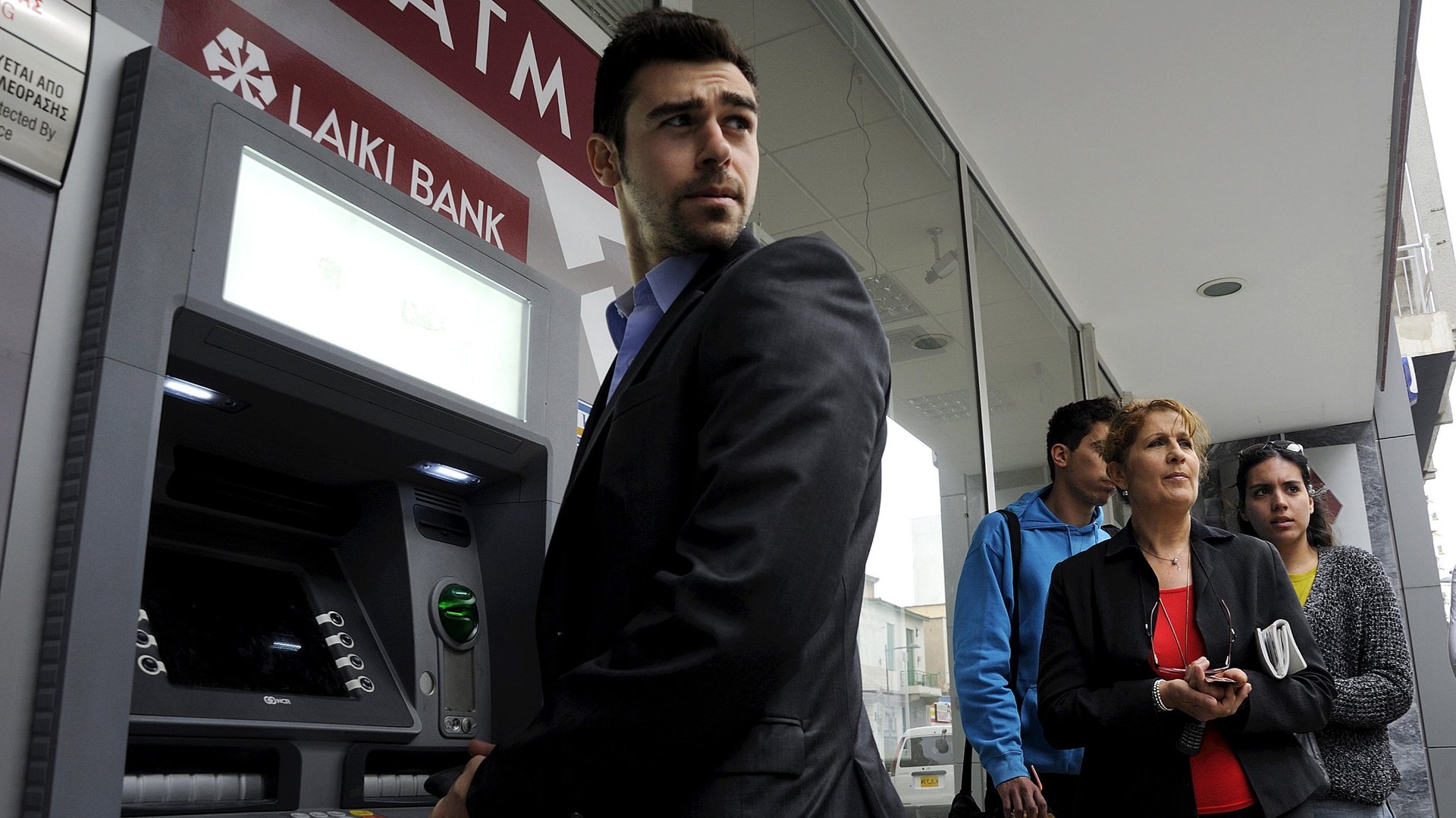Months more of capital controls are proof that Cyprus is still not solved
Thought we were done talking about Cyprus? Think again. The FT reports that the Cypriot government will keep many capital controls (paywall)—meant to prevent money from flooding out of the Cypriot financial system—in place until September at the earliest, to prevent a run on deposits. This is hardly a sign that Cyprus is on the road to recovery.


Thought we were done talking about Cyprus? Think again. The FT reports that the Cypriot government will keep many capital controls (paywall)—meant to prevent money from flooding out of the Cypriot financial system—in place until September at the earliest, to prevent a run on deposits. This is hardly a sign that Cyprus is on the road to recovery.
The country has relaxed its capital rules only slightly since March, when it agreed to an international bailout worth €21 billion (€27.4 billion). That bailout included a tax on deposits in the country’s two largest banks—Bank of Cyprus and Laiki Popular Bank. Individuals may now transfer up to €5,000 per month out of the country (up from €2,000), and businesses can move up to €500,000 without restrictions. Controls were also lifted on Cypriot subsidiaries of foreign banks, because the subsidiaries were recapitalized.
The decision to keep capital controls in place is the best indication that Cyprus is still in crisis mode. Cypriot banks lost €1.8 billion in deposits in March, ECB data showed today. That was only a 3.9% decline from February. At the very least, an outflow of deposits didn’t appear to be affecting other countries; Belgian and Finnish banks were the only others to report outflows on aggregate.
A government official said the government will leave controls in place at least until Laiki is liquidated and the Bank of Cyprus can be restructured—September at the earliest. In reality, it means that money—even the money that hasn’t been frozen as part of the bank levy—is still itching to get out of the country.